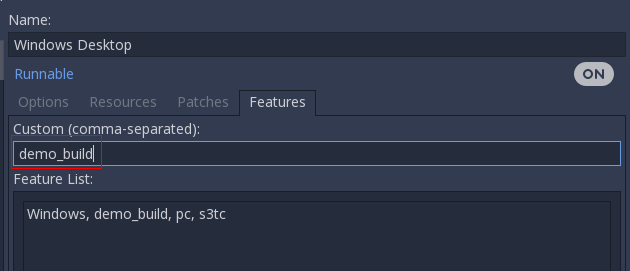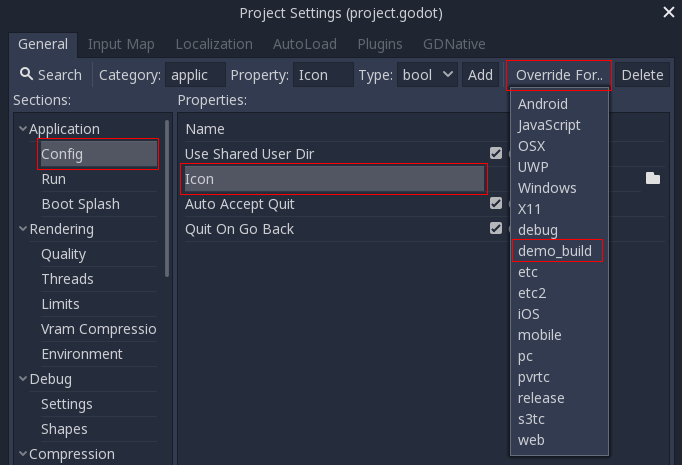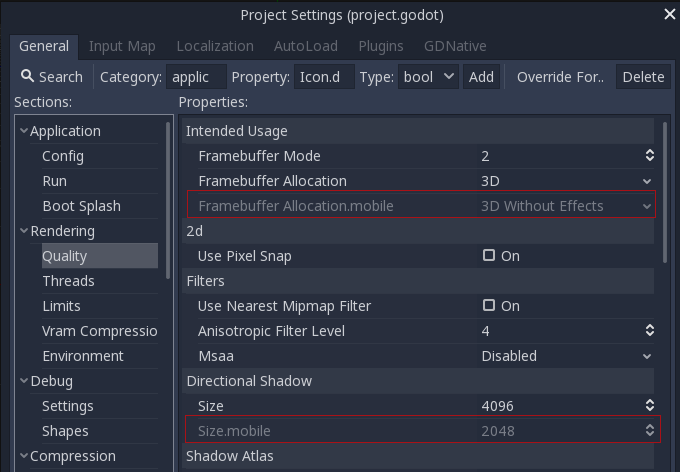Feature Tags¶
Introduction¶
Godot has a special system to tag availability of features. Each feature is represented as a string, and it can refer to many of the following:
- Platform name.
- Platform bits (64/32).
- Platform type (desktop/mobile).
- Supported texture compression in platform.
- Whether a build is debug or release.
- Many more things.
Features can be queried in run-time to the singleton API by calling:
OS.has_feature(name)
Default features¶
Here is a list of most feature tags in Godot. Keep in mind they are case sensitive:
| Feature Tag | Description |
|---|---|
| Android | Running on Android |
| HTML5 | Running on HTML5 |
| JavaScript | JavaScript singleton is available |
| OSX | Running on macOS |
| iOS | Running on iOS |
| UWP | Running on UWP |
| Windows | Running on Windows |
| X11 | Running on X11 |
| debug | Running on a debug build |
| release | Running on a release build |
| 32 | Running on a 32-bit build |
| 64 | Running on a 64-bit build |
| mobile | Host OS is a mobile platform |
| pc | Host OS is a PC platform (desktop/laptop) |
| web | Host OS is a Web browser |
| etc | Textures using ETC1 compression are supported |
| etc2 | Textures using ETC2 compression are supported |
| s3tc | Textures using S3TC (DXT/BC) compression are supported |
| pvrtc | Textures using PVRTC compression are supported |
Custom features¶
It is possible to add custom features to a build, use the relevant field in the export preset used to generate it:

Overriding project settings¶
Features can be used to override specific configuration values in the Project Settings. This allows to better customize any configuration when doing a build.
In the following example, a different icon is added for the demo build of the game (which was customized in a special export preset which, in turn, includes only demo levels).

After overriding, a new field is added for this specific configuration:

Default overrides¶
There are already a lot of settings that come with overrides by default, they can be found in many sections of the project settings.

Customizing Build¶
Feature tags can be used to customize a build process too, by writing a custom ExportPlugin. They also are used to specify which shared library is loaded and exported in GDNative.